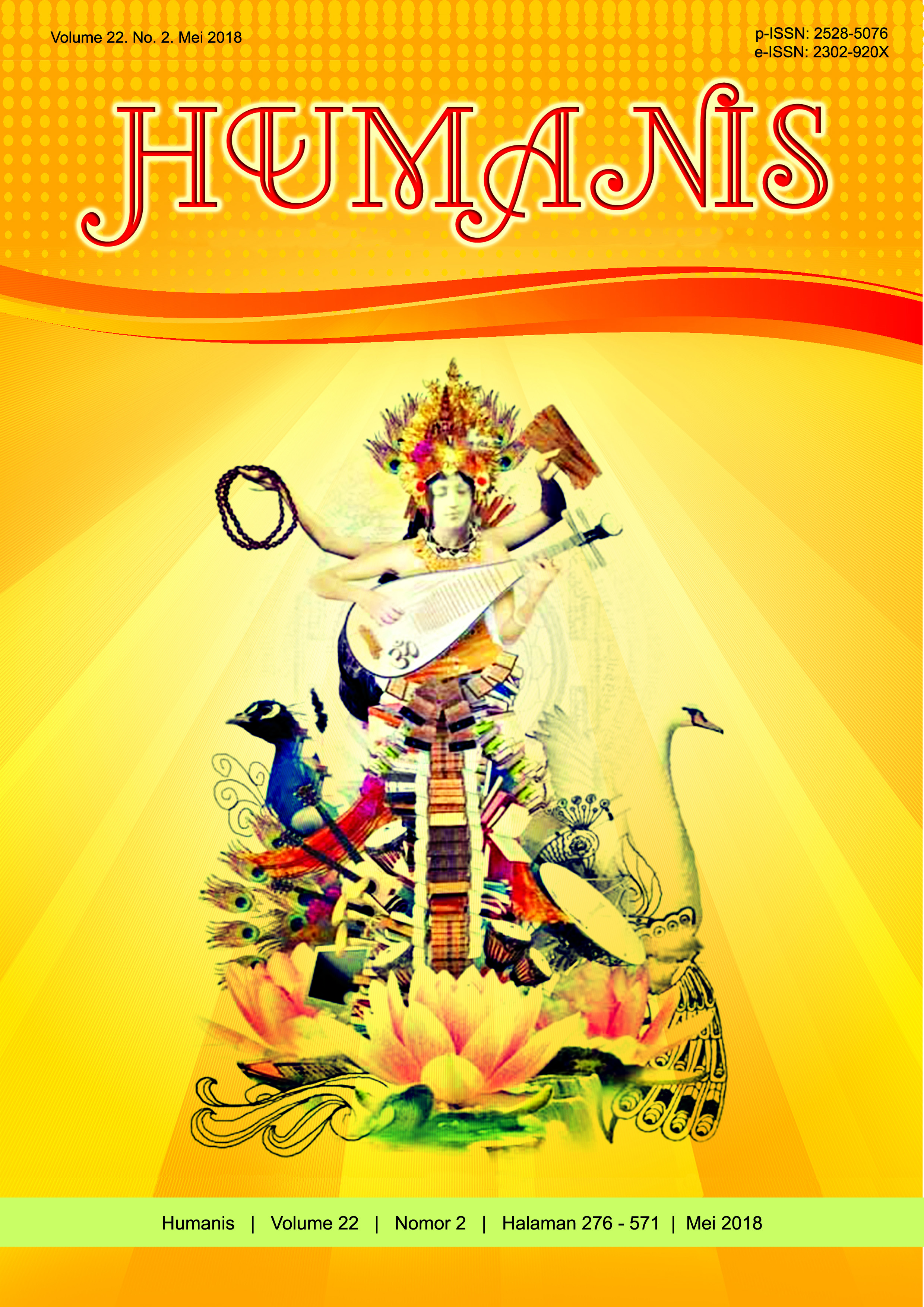Semiotic Study of Symbol for Sandy The Mute Character in Rise of Guardian Movie
Abstract
This study entitled Semiotics Study of Symbols for Sandy the Mute Character in Rise of Guardian Movie is aimed at identifying the concept as the representation of the symbols and also describing and analyzing the meaning behind the use of the symbols. This study focuses on a character which has disability in producing sound, so he only uses symbols to communicate instead of words or body language. The data of this study were taken from Rise of the Guardian, a movie released by Collombus Home Production in 2011. The qualitative method was used in obtaining the relevant data. The data were collected using the documentation method; the data were taken by capturing and cropping the symbols. The relevant data were analyzed descriptively and in narrative form. The concepts were analyzed using the theory proposed by Saussure about signifier and signified, and were descriptively explained using draft. The meaning was analyzed using the theory of seven types of meaning proposed by Leech and then narratively explains and the final result was the conclusion of the symbols according to the types of meaning. The results of analysis show that symbols do not always have conceptual meaning, and most of them symbolize the further concept to the form of symbols. The concepts that are discovered mostly have different concepts, meaning that the concept is far from its conceptual concept; a dolphin can resemble the happiness of children and so on. The meaning of the symbol can be represented according to the situation where the symbols are used and are also according to the speaker and the producer of it. The combination of symbols can also convey a different meaning.


















